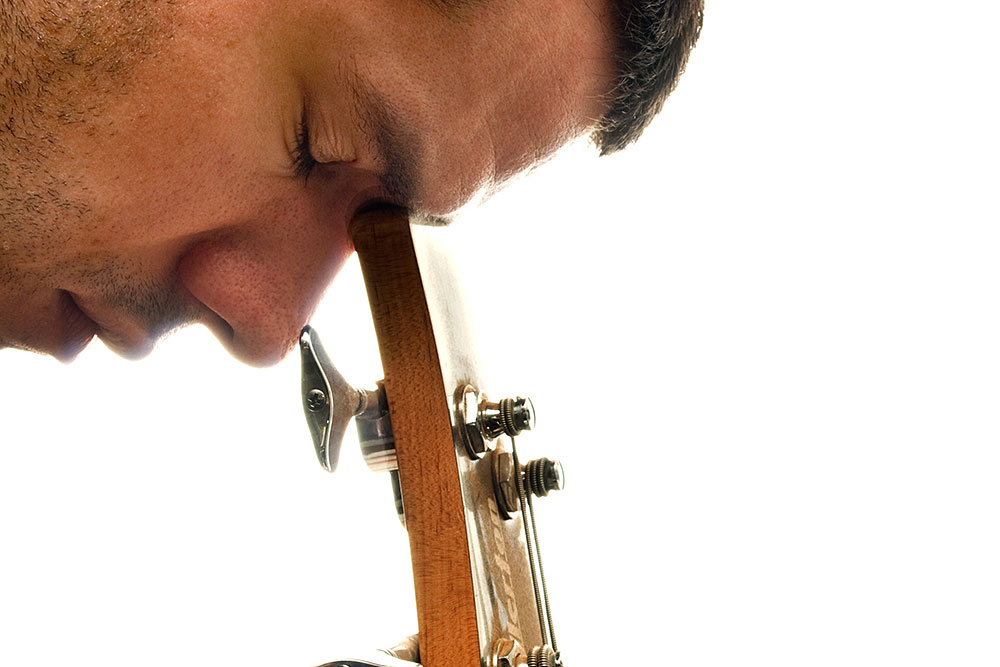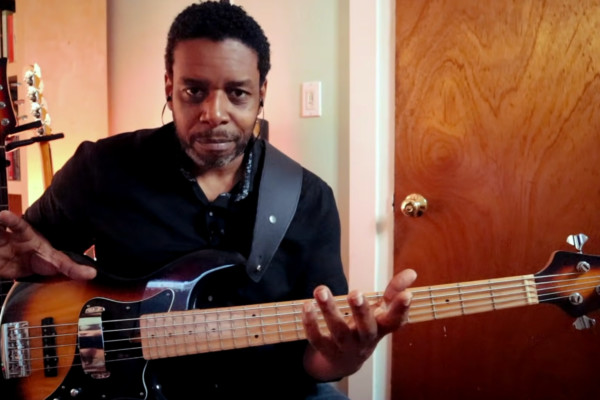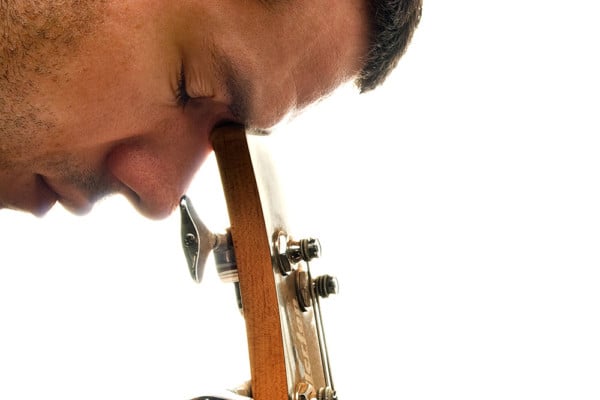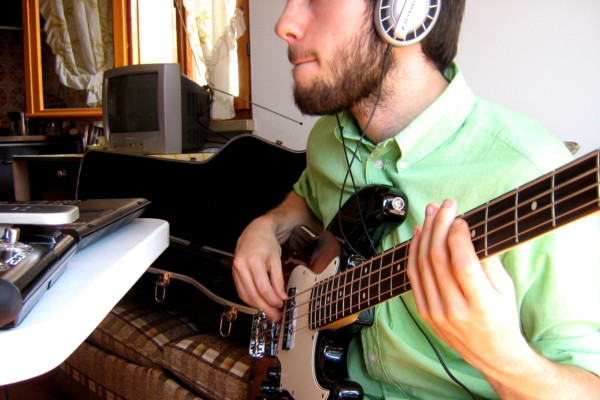Is It Okay to Multitask While Practicing?

Q: I’m hoping that you can chime in on a debate my friend and I have going. He tends to multitask while he practices (Netflix shows streaming, social media feeds running, etc.) I always give him a hard time about because I feel like when you practice, you shouldn’t be doing other things but he feels like, as long as he’s playing, he’s putting in the time. It seems obvious to me but I wondered what you would say about it.
A: I actually get asked this from time to time because, in past columns, I’ve mentioned that I worked on a lot of my muscle memory while watching movies or tv. I’m glad to clear up some possible misconceptions about that, while I also answer your question here.
With regard to certain types of super repetitive finger exercises, speed exercises, and the like, I think that we can get away with a little distraction while we work on the muscle memory. The danger is that we play how we practice and we don’t want to internalize incorrect, inefficient, or sloppy technique. I only ever did this with very specific types of exercises like plucking patterns using 3-fingers, for example.
And still, I didn’t just jump straight to the tv and start drilling them, I only got in some extra mindless hours of finger time after having spent quality time in the shed getting the basics together (playing with good tone, efficient movements, good pressure, articulation, etc.)
Then, and only then, would I continue to noodle around with patterns while distracted by other things like movies.
99.5% percent of the time, however, I am completely with you in your assessment. I firmly believe that there is a huge difference between practicing and noodling. Noodling is just playing around, goofing on the instrument without really trying to do anything specific. This is a great time spent and I encourage everybody to have the instrument in their hands as much as they can/want. However, it is NOT practice.
Practice is when you are specifically focusing on things that you haven’t mastered yet and trying to nail them down. Practice is the art of working through those things we can’t yet do so that we may one day be able to do them (I think that I’m paraphrasing a Picasso quote there )
Like I said, we play how we practice, so it’s important to take our practice seriously. If we can’t focus in the shed, how can we expect to focus on the gig for hours on end?
If we don’t work on our tone, articulation, feel, time, and approach in the shed, how can we expect to magically play well on the gig?
What I would say to your friend is that, yes any time spent with the instrument is time well spent but if he actually wants to take his playing to new heights, he’s going to have to shut down his streams and screens and get to work. Evolution doesn’t come easy and if we mindlessly bumble through things, we’ll never get beyond ‘decent’ at whatever it is that we’re trying to do (which is totally fine, as long as you never intended to be any better than decent at it). If anyone wants to really evolve and transcend their abilities and perceptions of what can be done and how to do it?
Real, focused time needs to be put in.
Those that truly love what they’re doing and play because they can’t imagine doing anything else, generally fall into serious practice on their own. Most of the disillusioned or frustrated folks I come across are people who never really committed themselves to it, ultimately. I’ve said it before but “talent” is really just a fancy word for hard work, for the most part.
Sure, some people may have better reflexes or better musculature or physiology or… whatever, that makes them naturally better at one thing than another person but, nobody ever got phenomenal at anything by half-assing it. Some people can get decent by doing the bare minimum and some people half to work twice as hard, but only those who routinely break a sweat, are the ones to take it to the next level (regardless of what it is you do).
If you want to be a serious player, you MUST be a serious practicer.
Have a question for Damian Erskine? Send it to [email protected]. Check out Damian’s instructional books, Right Hand Drive and The Improviser’s Path.



